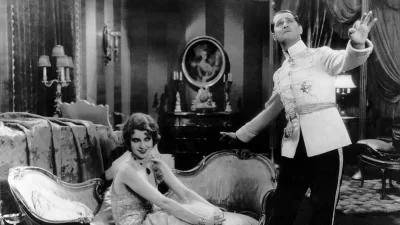And, how to understand this movie.
The movie musical, that naive, frivolous, sometimes surreal and often joyous American institution, took a big step in its evolution with “The Love Parade.” Released in 1929, this Ernst Lubitsch-directed film was one of the earliest to take inspiration from Broadway and combine a steady stream of songs with a lighthearted story line.
3rd Academy Awards
The Love Parade was nominated for six Academy Awards:
| Category | Receptor | Result |
|---|---|---|
| Outstanding Production | Paramount Famous Lasky (Ernst Lubitsch) | Nominated |
| Best Director | Ernst Lubitsch | Nominated |
| Best Actor | Maurice Chevalier | Nominated |
| Best Art Direction | Hans Dreier | Nominated |
| Best Cinematography | Victor Milner | Nominated |
| Best Sound Recording | Franklin Hansen | Nominated |
“The Love Parade” has the look of rough pioneering. Somewhat clunky and definitely antique, it carries the imprint of a period when movies struggled into the sound era, often not knowing what to do with themselves along the way. But it also carries the “Lubitsch touch,” which, in this case, resulted in a leisurely grace and an awareness of just what the movie’s stars could do with the right material.

WATCH FREE- THE LOVE PARADE (Click here)
‘The Love Parade” is also significant as Jeanette MacDonald’s first movie, and the first time she was teamed up with Maurice Chevalier, who had a pretty good year in 1929, making his popular debut in “Innocents of Paris” only months earlier.
There’s much wit in Lubitsch’s directing–the opening shot of giant champagne bottles and chorus girls with the word “Paris” above their heads is typical. And the Victor Schertzinger and Clifford Grey score, with songs such as “Anything to Please the Queen” and “Grenadiers,” is fetching in a quaint, old-fashioned way.
The Love Parade is notable for being both the film debut of Jeanette MacDonald and the first “talkie” film made by Ernst Lubitsch. The picture was also released in a French-language version called Parade d’amour. Chevalier had thought that he would never be capable of acting as a Royal courtier, and had to be persuaded by Lubitsch. This huge box-office hit appeared just after the Wall Street crash, and did much to save the fortunes of Paramount.






